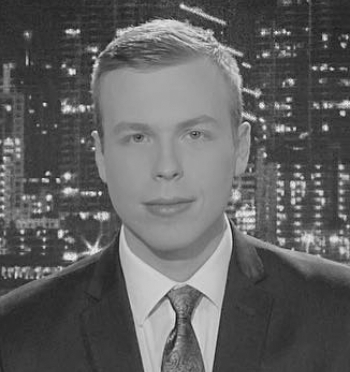5 times colleges proved to be anti-free speech in 2021
Throughout 2021, Campus Reform has covered many colleges and universities that compromised students' First Amendment rights on campus.
Throughout 2021, Campus Reform has covered many colleges and universities that compromised students’ First Amendment rights on campus.
Here are 5 times colleges infringed on free speech this year.
1. Do universities control students’ political speech? A new report suggests they do.
The Foundation for Individual Rights in Education’s recent report, “Spotlight on Speech Codes 2022,” explains how schools condition students’ speech using “prior restraints,” which the organization defines as policies “requiring students and student organizations to register their expressive activities well in advance and, often, to obtain administrative approval for those activities.”
FIRE Policy Reform Director Laura Beltz singles out Tufts University in a Dec. 13 statement for having a particularly chilling policy regarding political leaflets.
Another school cited in the report is Rice University, where students must check with the campus police department “at least 48 hours in advance of the activity to request permission” before holding a demonstration.
2. Point Park University threatens ‘action’ against students for using wrong pronouns
On September 13th, Point Park University’s Office of Equity and Inclusion sent an email to the student body that “action could be taken” against those who misgender their classmates or do not use their preferred pronouns.
The university’s Misgendering, Pronoun Misuse, and Deadnaming Policy states that “any individual who has been informed of another person’s gender identity, pronouns, or chosen name is expected to respect that individual.”
Per this policy, the email states that “While the University recognizes the aspect of intent versus impact, we must recognize that regardless of the intent, if an individual is impacted in a harmful way, action could be taken if a complaint is filed.”
3. University suspends TPUSA club for criticizing Chinese Communist Party
In September, Emerson College’s Turning Point USA chapter was suspended and faced potential expulsion for passing out stickers opposing the Chinese Communist Party. The stickers showed an Among Us video game character with the hammer and sickle on its side. The sticker read, “China kinda sus” – an abbreviated way of saying “suspicious.”
After backlash from students who deemed the stickers to be racist, Emerson’s Interim President William P. Gilligan referred to the stickers as a “disturbing” display of “anti-Chinese messaging inconsistent with the College’s values” in an email to the student body. The club was barred from holding any chapter activities pending an investigation.
The investigation concluded that the club was guilty of bias related behavior, and the club was issued a school violation warning, but had their suspension lifted. Sam Neeves, the chapter president, tried to appeal the decision, but was unsuccessful.
4. Bethany College officials cite ‘hate speech’ and ‘harassment’ to prevent TPUSA chapter on campus
Early this year, Bethany College halted student efforts to start a Turning Point USA chapter on campus, according to a letter shared with Campus Reform.
The letter also stated that school officials told students “not to gather signatures in support of their petition [to have the chapter] because their application would not move forward.”
Southeastern Legal Foundation General Counsel Kim Hermann said in the letter to Bethany College’s Gerald Stebbins accusing the school of failing to uphold “free and unfettered discussion of the widest possible nature.”
The University of Oklahoma held an “Anti-Racist Rhetoric & Pedagogies” workshop for its professors to instruct them on how to restrict student speech in the classroom that is deemed to be “hate speech” or seen as “derogatory.”
One of the workshop leaders, Kasey Woody, said in a recording that professors “do not need to worry about repercussions at any degree in the university if you are responding to a student who is using problematic language in the classroom.”
None of the workshop leaders offered direct insight as to what supposedly constitutes “hate speech,” but encouraged professors to help students “re-adjust” a given topic that could be viewed as offensive.
Despite these unregulated speech restrictions, Vice President for Diversity, Equity, and Inclusion Belinda Higgs Hyppolite insisted that free expression and diversity of viewpoints are “central elements of the university’s strategic plan” In a statement provided to Campus Reform.
Follow the author of this article on Twitter: @_addisonsmith1

